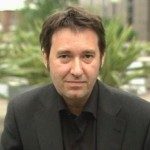Link to Pubmed [PMID] – 32359473
Link to DOI – 10.1016/j.ajhg.2020.04.004
Am J Hum Genet 2020 May; 106(5): 587-595
Despite evidence that deleterious variants in the same genes are implicated across multiple neurodevelopmental and neuropsychiatric disorders, there has been considerable interest in identifying genes that, when mutated, confer risk that is largely specific for autism spectrum disorder (ASD). Here, we review the findings and limitations of recent efforts to identify relatively “autism-specific” genes, efforts which focus on rare variants of large effect size that are thought to account for the observed phenotypes. We present a divergent interpretation of published evidence; discuss practical and theoretical issues related to studying the relationships between rare, large-effect deleterious variants and neurodevelopmental phenotypes; and describe potential future directions of this research. We argue that there is currently insufficient evidence to establish meaningful ASD specificity of any genes based on large-effect rare-variant data.

